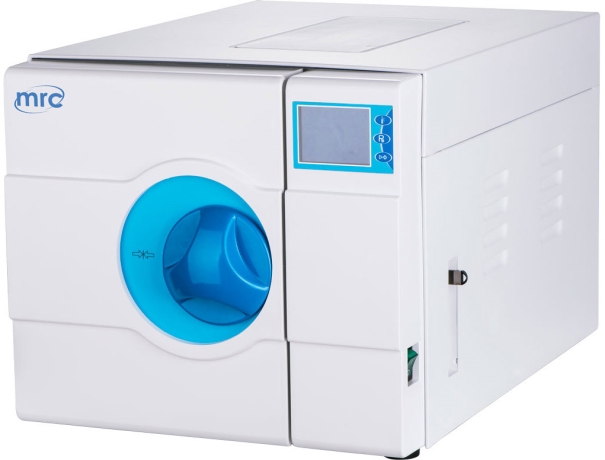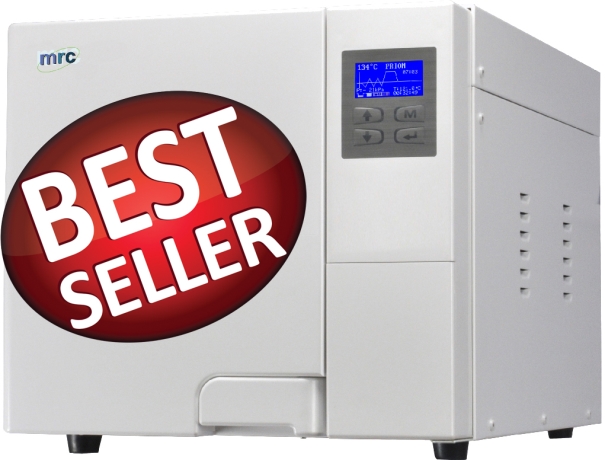Ensuring that tools, instruments, and products are free from harmful microorganisms is not just a regulatory requirement but a moral imperative to protect public health and safety. This is where autoclaves come into play. Autoclaves, commonly referred to as steam sterilizers, are indispensable in many fields, ensuring that sterilization is both effective and efficient.
What is an Autoclave?
An Autoclave is a device used to sterilize equipment and supplies by subjecting them to high-pressure saturated steam at 121°C (250°F) for around 15–20 minutes depending on the size of the load and the contents. The purpose is to kill all bacteria, viruses, fungi, and spores, leaving the instruments or materials completely sterile.
Types of Autoclaves: There are different types of autoclaves designed for various applications. Some of the most common include:
- Gravity Displacement Autoclaves: Ideal for sterilizing solid instruments and devices.
- Pre-vacuum Autoclaves: Designed for porous loads and items with narrow lumens.
- Steam-Flush Pressure-Pulse (SFPP) Autoclaves: Used for processing difficult loads with a high sterilization assurance level.
The Principle Behind Autoclave Operation
Autoclaves operate on a simple principle: using high-pressure steam to kill microorganisms. When the steam penetrates the object being sterilized, it transfers its heat to the object. The combination of steam under pressure and the resulting high temperature is lethal to all forms of life, including spores, which are typically resistant to heat.
The Role of Temperature and Pressure: The effectiveness of an autoclave is determined by its ability to maintain a high enough temperature (typically 121°C) and sufficient pressure (usually 15 psi) for a specific duration. This environment ensures that even the most resistant spores are eradicated.

Industries Where Autoclaves are Essential
Healthcare and Medical Industry
In the healthcare sector, autoclaves are crucial for maintaining a sterile environment. Surgical instruments, medical waste, and even some types of implants are sterilized using autoclaves.
- Sterilization of Surgical Instruments: Autoclaves ensure that surgical tools are free from pathogens before use.
- Sterilization of Medical Waste: Safely disposing of medical waste by sterilizing it before disposal is vital to prevent contamination.
Pharmaceutical Industry
The pharmaceutical industry relies heavily on autoclaves to ensure that both the production environment and the products themselves are free from contaminants.
- Sterilization of Equipment and Instruments: Autoclaves are used to sterilize equipment that comes into contact with drugs.
- Preparation of Sterile Products: Some pharmaceutical products require sterilization during the production process to ensure they are safe for consumption.
Laboratory Use
In laboratories, autoclaves are used to sterilize glassware, instruments, and even biological samples to ensure that experiments are not compromised by contamination.
- Sterilization of Glassware and Instruments: Essential for maintaining the integrity of experiments.
- Biological Sample Preparation: Preparing samples in a sterile environment is crucial for accurate research results.

Food and Beverage Industry
Autoclaves play a significant role in the food and beverage industry by ensuring that products are safe for consumption.
- Canning and Packaging: Autoclaves are used in the canning process to sterilize food products and extend shelf life.
- Ensuring Food Safety: By sterilizing food products, autoclaves help in preventing foodborne illnesses.
Aerospace and Defense
In the aerospace and defense industries, autoclaves are used not only for sterilization but also for manufacturing components.
- Composite Material Curing: Autoclaves are used to cure composite materials, ensuring they have the necessary strength and durability.
- Sterilization of Equipment: In space missions, equipment must be sterilized to prevent contamination of other planets or space environments.
Veterinary Medicine
Just like in human healthcare, autoclaves are vital in veterinary medicine for sterilizing surgical tools and maintaining a sterile environment.
- Sterilization of Surgical Tools and Equipment: Ensures that animals are treated with sterile instruments.
- Animal Health and Safety: Preventing the spread of disease in veterinary settings is critical, and autoclaves play a key role.
Tattoo and Body Piercing Studios
In the body art industry, maintaining a sterile environment is non-negotiable. Autoclaves are essential for ensuring that needles and tools are free from pathogens.
- Sterilization of Needles and Tools: Prevents infections during body art procedures.
- Importance of Sterility in Body Art: Protects clients from potential health risks.
Emerging Industries Utilizing Autoclaves
Cannabis Industry
With the legalization of cannabis in various regions, the industry has adopted autoclaves to ensure product safety.
- Sterilization of Cultivation Equipment: Prevents the growth of mold and bacteria in cultivation facilities.
- Preparation of Cannabis Products: Ensures that products are free from contaminants before they reach the consumer.
Cosmetic Industry
The cosmetic industry also utilizes autoclaves to ensure the safety and sterility of their products.
- Sterilization of Packaging Materials: Ensures that containers and packaging do not contaminate cosmetic products.
- Ensuring Product Safety: Autoclaves help in maintaining the safety standards of cosmetic products.
Advantages of Using Autoclaves in Various Industries
The use of autoclaves provides numerous benefits across different sectors:
- Safety and Sterility: Ensures that all tools, instruments, and products are free from harmful microorganisms.
- Cost-Effectiveness: Autoclaves are a reliable and cost-effective method of sterilization.
- Versatility: Can be used to sterilize a wide range of materials, making them suitable for various industries.

What is the right temperature for each of the industries?
The right temperature for autoclaving varies depending on the industry and the specific materials being sterilized. Below is a general guide for the appropriate autoclave temperatures across different industries:
Healthcare and Medical Industry
- Surgical Instruments: Typically, a temperature of 121°C (250°F) under pressure (15 psi) is used for 15-30 minutes. Some sensitive instruments may require a lower temperature around 115°C (239°F).
- Medical Waste: Often sterilized at 121°C (250°F) for 30 minutes, but larger loads or more resistant waste might require temperatures of up to 134°C (273°F).
Pharmaceutical Industry
- Sterilization of Equipment and Instruments: Generally, 121°C (250°F) for 15-30 minutes is sufficient, but some processes may require up to 134°C (273°F) depending on the sterility assurance level needed.
- Preparation of Sterile Products: Sensitive pharmaceutical products might be sterilized at 115°C (239°F), while more robust materials can withstand 121°C (250°F) or higher.
Laboratory Use
- Glassware and Instruments: A standard temperature of 121°C (250°F) is commonly used for 15-30 minutes.
- Biological Sample Preparation: Samples might be autoclaved at 121°C (250°F) for 15-20 minutes, though some may require a lower temperature of around 115°C (239°F) to avoid damage.
Food and Beverage Industry
- Canning and Packaging: The food industry often uses 121°C (250°F), but specific foods may require different conditions. For instance, low-acid foods may require 121°C (250°F) for a longer duration, while high-acid foods might need only 100°C (212°F) in a water bath.
- Ensuring Food Safety: The temperature varies based on the food product, but 121°C (250°F) is a common benchmark for sterilization.
Aerospace and Defense
- Composite Material Curing: This process may require higher temperatures, such as 135°C to 180°C (275°F to 356°F), depending on the material being cured.
- Sterilization of Equipment: Similar to the healthcare industry, equipment is usually sterilized at 121°C (250°F), though some processes might use 134°C (273°F) for enhanced sterility.
Veterinary Medicine
- Sterilization of Surgical Tools and Equipment: Similar to human healthcare, 121°C (250°F) for 15-30 minutes is typical.
- Animal Health and Safety: For certain sensitive items, temperatures may range from 115°C (239°F) to 121°C (250°F).
Tattoo and Body Piercing Studios
- Sterilization of Needles and Tools: Generally, 121°C (250°F) for 15-30 minutes is used to ensure sterility.
Cannabis Industry
- Sterilization of Cultivation Equipment: Often sterilized at 121°C (250°F), but this can vary depending on the equipment and local regulations.
- Preparation of Cannabis Products: Similar to food products, 121°C (250°F) is commonly used to ensure product safety.
Cosmetic Industry
- Sterilization of Packaging Materials: A typical temperature is 121°C (250°F), but this may be adjusted based on the material’s tolerance.
- Ensuring Product Safety: For some sensitive cosmetic products, lower temperatures like 115°C (239°F) may be used to avoid damaging the product while ensuring sterility.
General Considerations
- Material Compatibility: Not all materials can withstand high temperatures. For materials sensitive to heat, lower temperatures such as 115°C (239°F) or even 100°C (212°F) (as in pasteurization) may be used.
- Cycle Duration: The duration at the target temperature is also crucial and varies based on the load size and type of material being sterilized.